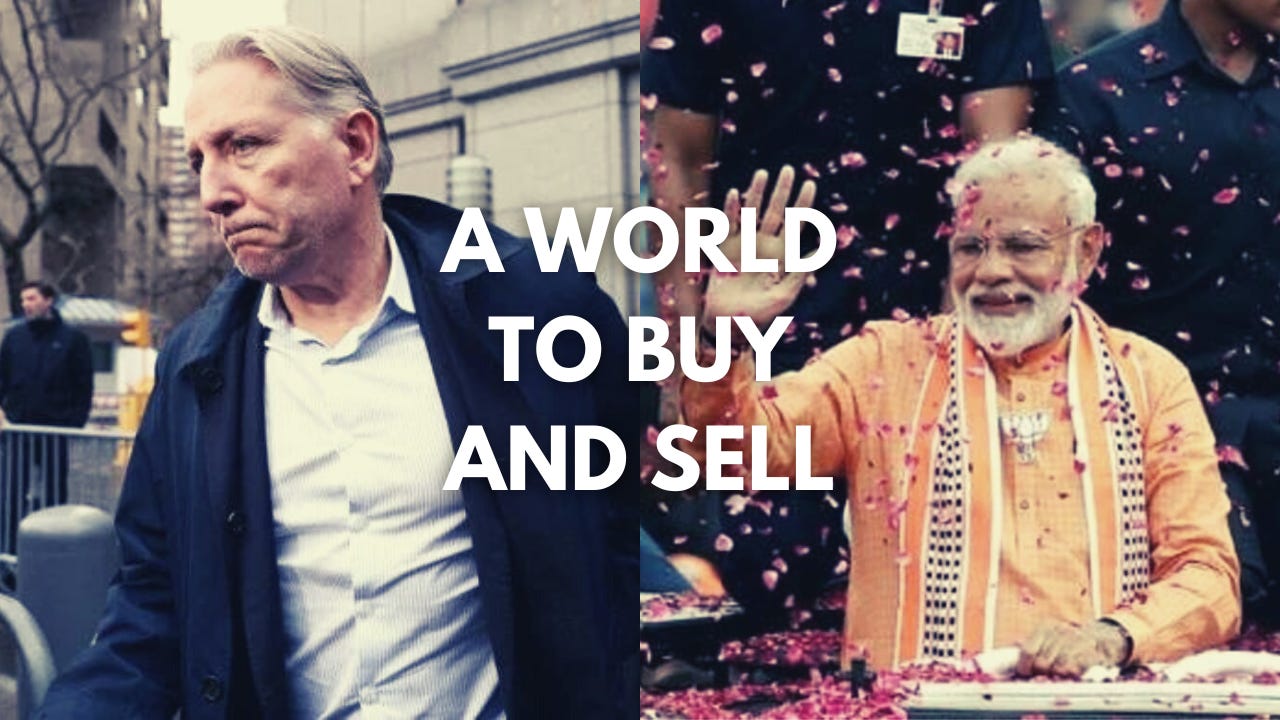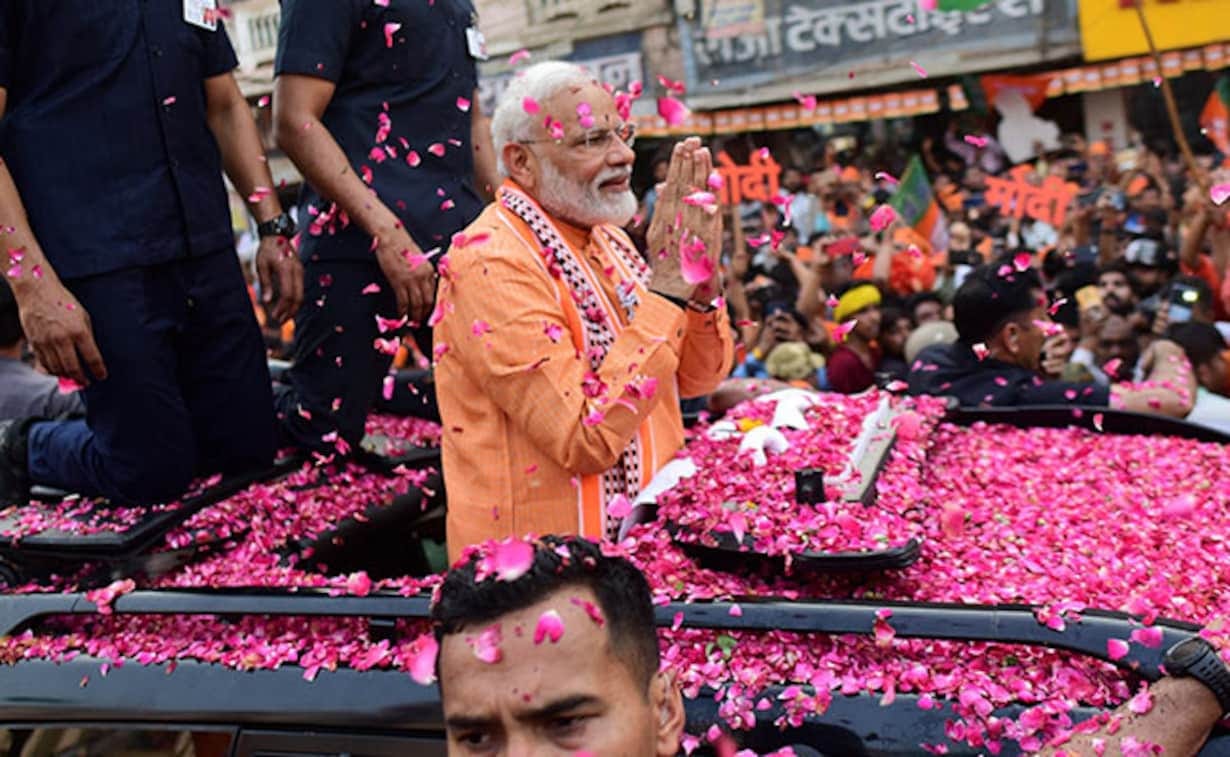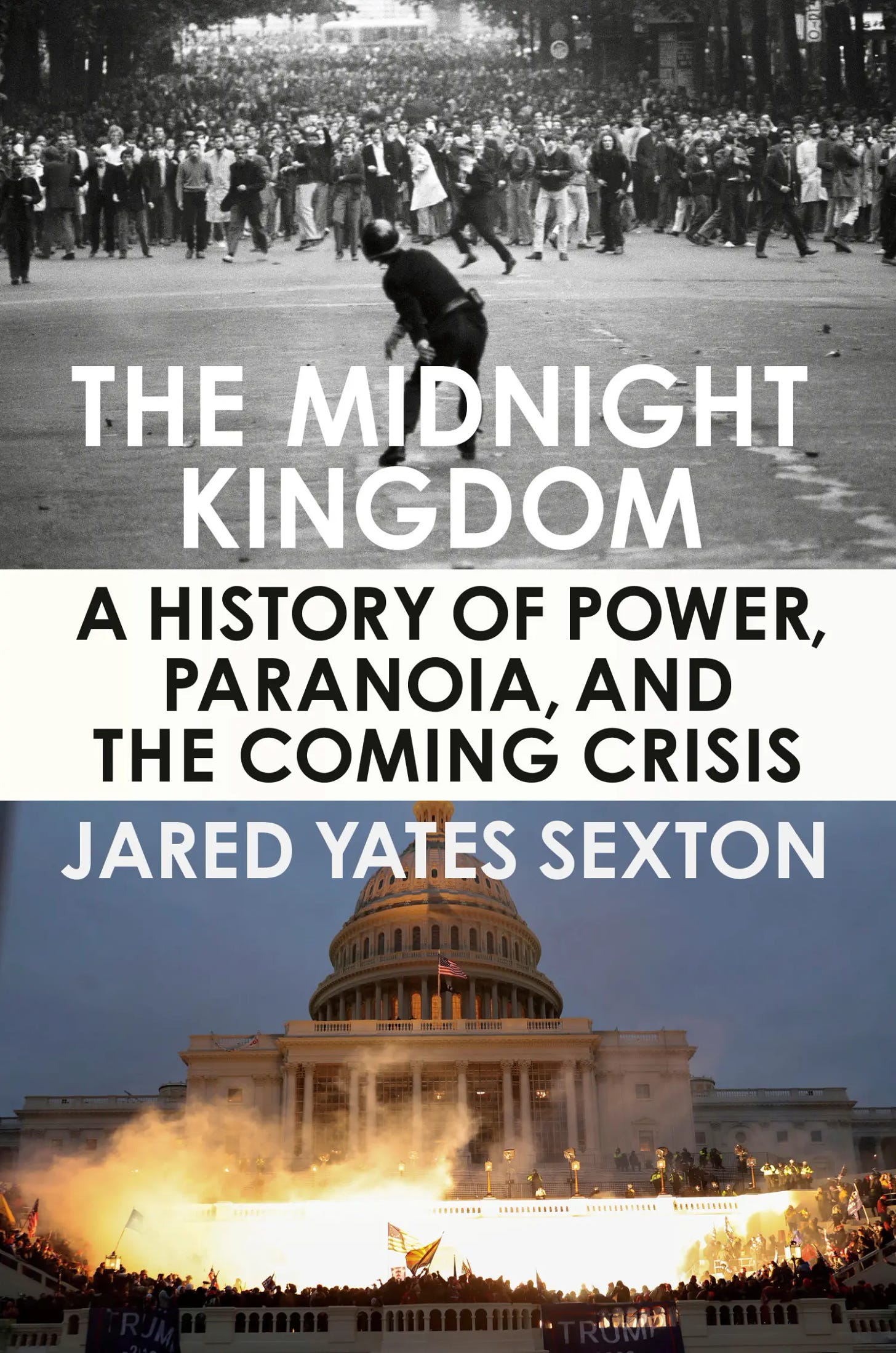A World To Buy And Sell
Corruption, betrayal, and authoritarianism are natural side-effects of a world where the only thing that matters is power and wealth
Couple of announcements before we get to the article:
THE MIDNIGHT KINGDOM: A HISTORY OF POWER, PARANOIA, AND THE COMING CRISIS is out in the world! If you haven’t already, order your copy or pick it up at your local bookstore. In the next few weeks I’ll be at Politics & Prose in Washington, D.C. on February 6th and at St. Louis’s Left Bank Books on February 16th. I’ll have more information on those events and others here soon.
AND speaking of events: this Sunday, January 29th, at 8pm eastern, Ruth Ben-Ghiat and I are teaming up for an event on Zoom. This will be open to our Substack subscribers, so, if you haven’t already, subscribe so you don’t miss out! Ruth is one of my favorite people in the world and I can’t wait for this discussion. Reply to this post with your questions and you might end up hearing Ruth and I answer them on Sunday.
Prior to 2018, Charles McGonigal was trusted with some of the most crucial and sensitive information in the country. As head of the FBI’s counterintelligence in New York, he was charged with investigating foreign influence, much of it involving oligarchs like Oleg Deripaska. But now he has been charged with corruption, including taking Deripaska’s money.
There are many questions remaining to be answered regarding McGonigal’s alleged crimes, including how this has affected other investigations and notable…situations. I prefer to be honest when I talk about these matters and shy away from false hope, so I’ll tell you that I don’t expect we’ll get a full explanation or post-mortem on this. These things have a tendency to slither away, to maybe reappear later as “______ Found Guilty” headlines that get basically no attention or push from mainstream media.
But aside from larger implications, this case is an important example of a modern problem that has contributed to a larger crisis. This is not the first time, by any stretch, that an official or citizen has been caught taking bribes or working for a foreign entity. Of course, the Cold War was dotted with spies and espionage. But much of that was predicated on ideological battles. The fight between the United States and Russia at least had the sheen of a principled conflict. In the end, it was a showdown over resources and power that left the world worse than when it started, but many of the actors caught in-between the superpowers mostly felt they were warring for something, be it “freedom” or “socialism” or “revolution,” whatever it was that squared the circle late at night.
Greed is not new. It has affected politics since there were politics. But what feels novel or more frightening now is the bold-faced nature of the disease. Deripaska’s is a very typical story when it comes to Russian oligarchs. They built their wealth off the privatization of the Soviet Union’s assets, creating immense concentrations of capital that have been used facilitate power, control, and ultimately influence over the rest of the world. These oligarchs, following the lead of dictator Vladimir Putin, have used this wealth as a weapon, streaming it like poison into the veins of the world’s markets, corrupting entire political systems as easily as individuals.
This is the great untold story behind momentous events like the Ukrainian War, which has unfurled with the corruptive influence of Russian blood-money still pumping through these economic systems. It is how Putin, a butcher and criminal thug, has continually been welcomed into the inner-circles of power while his crimes have been continually met with collective indifference by so-called democratic states.
In the neoliberal global world, this is the price of doing business. The crushing of democracy and individuals is considered a byproduct of streamlined production/consumption and fits snugly into the neoliberal worldview that the market is more important than anything else. But that prioritization understandably creates antidemocratic energies and concentrations of wealth that, according to the system that birth them, understandably influence the rest of the world.
Typically, and preferably for the practitioners, this occurs behind closed doors. In the markets. With the injection of blood-money into housing investments that launder the suffering and criminality. Even in the big rooms at economic conferences and summits. It isn’t good for business, after all, for any of this ugliness to make it to the light of day. But more and more, there’s just simply no hiding it, and in late-stage capitalism, the entire sheen of respectability begins to fall away.
We’ve seen this in more public instances. The LIV Golf debacle is an expression of Saudi Arabian wealth overwhelming anything approaching scruples, morals, or ethics, because so much capital is concentrated in so few hands. The Saudi rulers are butchers who take advantage of the world’s continued addiction to fossil fuels (which is, in and of itself, another corruptive market that also fuels the Russian problem) and therefore are capable of outbidding nearly anyone on anything. That professional golfers, or even presidential son-in-laws looking to gain $2 billion dollars, look the other way and help launder their crimes makes perfect sense in this capital-obsessed world where there’s a price tag on everything.
On that same note, it comes as no surprise when The Intercept reveals that Elon Musk folded like a wet paper bag and complied with the government of India in removing a BBC documentary investigating Prime Minister Narendra Modi’s role in a 2002 genocide. Though Musk deserves all the criticism in the world for censoring such a report and abetting mass murder, he is no different from his counterparts in Big Tech who have continually bowed down to authoritarians and dictatorial regimes.
Again, this isn’t necessarily new. Big business has gone hand-in-hand with despots and suffering since there was big business. Hell, the original corporations were charged with colonization and carrying out the slave trade, both of which were run through and through with oppression on a scale that boggles the mind. But that it is done so easily now, in a modern day of outrage and awareness, is what really makes this so sinister.
Now, it is simply good business. Countries like China and India provide massive consumer bases, which is a lot more important on the ledger than the lives and fates of the people individually. Saudi Arabia is one of the world’s most consistent sources of investment and capital, particularly for those who need money fast, be it Donald Trump or the aforementioned Musk. Russia is the lubricator that keeps fresh investments continually pumping, meaning it’s necessary to keep Putin and his oligarchs in a facsimile of check, but also never really an option to sever completely.
On the subject of Trump, I have tried to explain his corruption and troubling ties to Russia for the last few years through a lens that is uncomfortable for many of us. Though we still see the United States of America as a country and its leaders as charged with carrying out our business, this new era has re-classified the U.S. as a market within a market, or possibly even more specifically as the chief node in a larger system. When Trump realized there was an opportunity for Russian investment or Russian assistance, it wasn’t treason or betrayal: it was a smart business move. And, relatedly, especially when looking at Trump and his trademark fearmongering, the removal of trade barriers has removed borders for capitalists while ensuring that the people on the ground are still locked into the old system of classification.
In other words, we’re still living in a world dominated by countries. The wealthy have transcended to another level where such things are quaint at best and weapons at worst.
The solution is both simple and complicated. We must confront corruption as a crime and an institution. The neoliberal regime intentionally stripped regulators of their power and resources while prioritizing growth in the markets and concentration of wealth over the following of laws. A new emphasis on reform is necessary to turn the tide and reestablish a semblance of sanity, but it’s also part of a larger sea change that will have to take hold should we find our way out of this mess.
Good news here is that wealth and greed are hollow. We look upon men like Trump and Musk and Putin and we see miserable people who have the world at their fingertips but take no joy from it. It’s a brittle institution we’re dealing with. The bad news is that this disease has been institutionalized into the framework of this global system. It’s not going to go easy, as we’ve seen with both Trump’s refusal to accept defeat and the insistence by Putin to continue his disastrous, barbarous war. But we simply have no choice. Unless we learn just to accept this awful status quo, with all of its indignities and exploitation and suffering, this is a fight we must take on.







This is a very depressing read, but I can’t argue with any of it. And The Midnight Kingdom is a great book, I’m really enjoying it!
Very excited for the upcoming joint event with Ruth Ben-Ghiat!